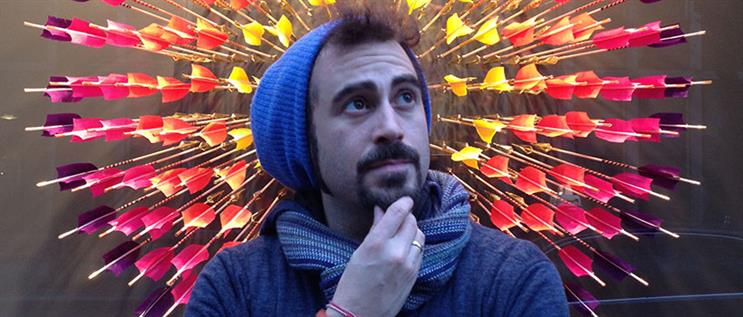In the superhero inspired procedural drama Gotham, there’s a leitmotif where different characters say "It’s a new day" when they believe themselves to be ascendant. It’s a new day, when said by the straight arrow police detective, because they are standing against corruption. It’s a new day for the mob boss when he thinks he has taken the city. It’s a new day for the police commissioner when she decides to stand up to the mob boss. And so on.
See, it’s always a new day. Except of course for the newspaper The New Day, which is shutting down after ten weeks because it failed to find an audience. It had plenty of content but it didn’t solve an unsolved problem in an already crowded, heavily consolidated and declining newspaper market.
This week it’s a new day for 北京赛车pk10. Congratulations on the birth of a newly integrated paper of record for "brands, agencies and media" all under one masthead. This has been precipitated by "the blurring of lines between professional disciplines that meant we had to dismantle the partitions between our own brands." This blurring is a result of a larger one that has been a long time coming.
Russell Davies wrote in 2007:
"Lines are blurring everywhere. The line between customers and employees is blurring. The line between public and private is blurring. The lines between media types and the lines around media authority. Allied to that is a blurring around what we're willing to pay, what we value and what we don't, how we're willing to pay for things. A blurring of the lines between advertising/branding and editorial/content."
And boy did it blur, as the digitization of media [and everything] erased the lines between channels, agencies and geographies. What does this mean or look like?
We have spent the last three years working around the world with agencies and brands, as consultants and partners. This provides an interesting purview. The blur is real. We have helped media agencies develop creative processes to better pitch ideas. We have helped PR agencies develop strategic planning approaches. We have worked on pitches with the biggest advertising agencies in London from the beach in Bali. Helped digital agencies decide whether they are advertising or digital product design. Across discipline and geography we see the same cosmic crunch, as agencies all begin to blur into "creative communication". Media agencies are hiring creative directors and starting content arms. Advertising agencies provide communication strategy.
Everyone is all up in everyone else’s grill, while clients are cutting the budgets allocated to "non-working media". Advertising services is a crowded, intensely consolidated and pressured market [we are all non-working media, after all], and agencies are increasingly blurring what they do for positioning purposes.
Many former advertising agencies now offer "creative solutions" to "business problems" but those solutions often seem to look like advertising. A creative solution would be anything but advertising, in that context, surely?
Sloppy use of language to aggrandize what we do doesn't clarify; it obfuscates core competencies to compete in a broader market, to gain access to different budgets, to suggest to the City a bigger multiple because the holding company has "digital" as a revenue line or has invested in "technology".
To be fair, everyone does this to some extent. Google and Facebook are the world’s largest performance marketing companies, despite what their mission statements purport. They have developed their own agencies to compete with agencies by using profits gleaned from agencies, but you won’t ever hear them say that.
Even the boundaries of 北京赛车pk10’s beat are blurring. The consultancies have been on a buying spree. They’ve aqui-hired service and digital design firms, innovation shops and now even advertising agencies. Deloitte recently bought Heat, a San Francisco creative agency hailed as "breakthrough agency of the year" in 2015.
Ultimately, we are all B2B providers of creatively driven advisory services, a market that will exist as long as there are companies that need to outsource some thinking, manage risk, and get a different point of view. [About Oxford commas, for example].
Corporations are large and therefore political and conservative. Too many agencies followed that model, building scale and capabilities, rather than maintaining the cultural points of difference that make them special inside the conservative world of professional services. When agency people get too comfortable in suits, they signal that they want to sit with lawyers and accountants and management consultants, to be taken more seriously. I wouldn’t pick that fight, personally. I believe our clients hire us because we offer a different, broader, point of view.
It remains to be seen if the consultancies can get creative acquisitions to assimilate, if media agencies can lead content, if PR can profit from planning. But when Deloitte competes with DDB in the next big "integrated" pitch, you’ll know it’s a new day.
Faris Yakob is the co-founder of . He is the author of the , published by Kogan Page. Despite living on the road you can reliably find him on .


